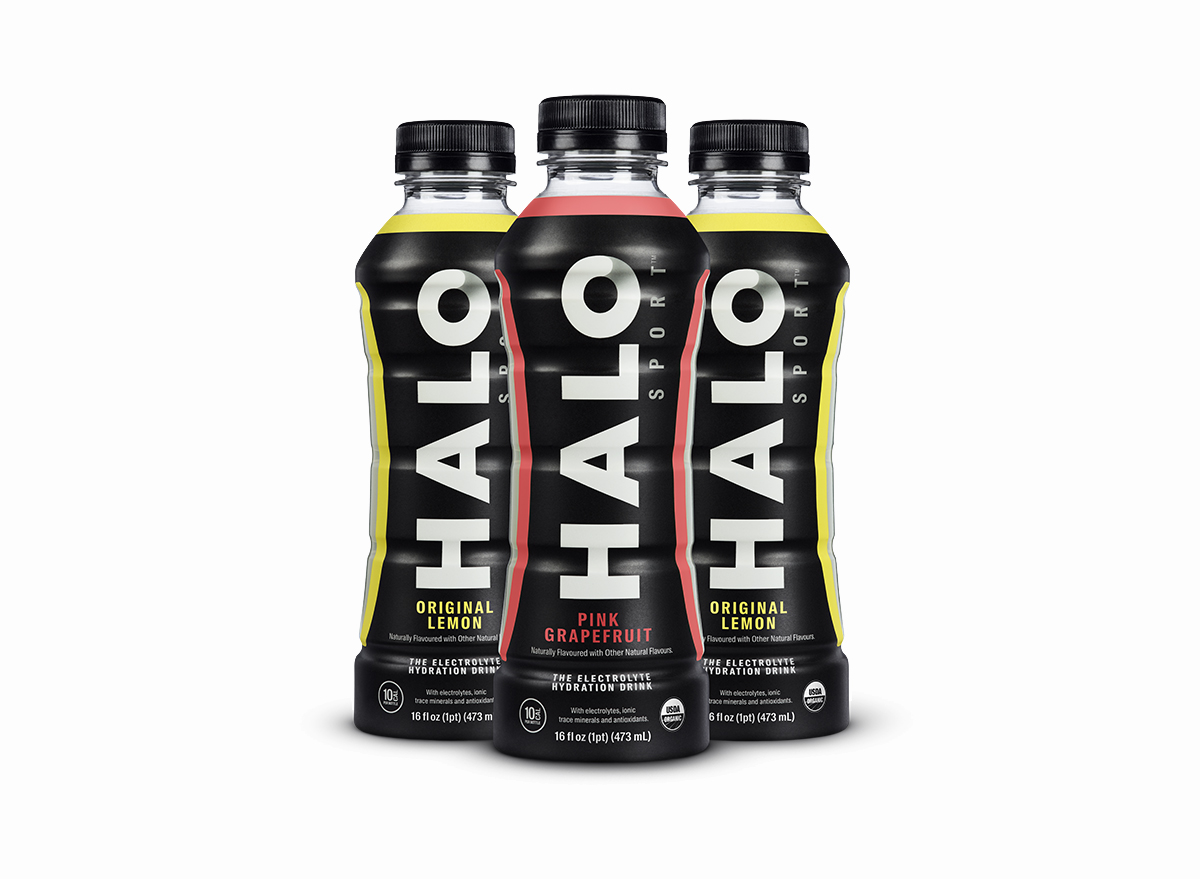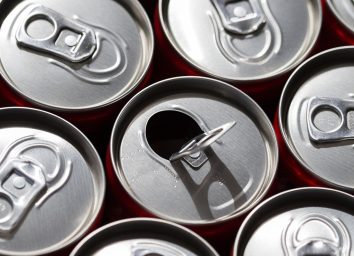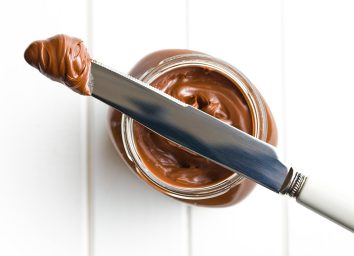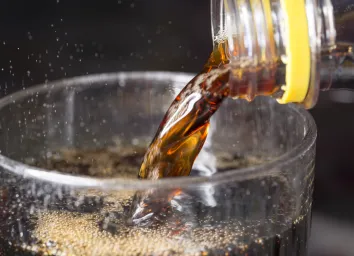What You Need to Know About Trace Minerals

In partnership with HALO Sport
Any wellness warrior today can tell you the fundamentals of a healthy diet. Carbs are out, healthy fats are in. (Check.) You should guzzle a pint of water first-thing in the morning. (Check.) But even the most seasoned fitness buffs—people who speak a language that includes words like "macronutrients," "Keto," and "supplements"—may not know about one of the most important things their bodies desperately need to stay healthy and in peak form: trace minerals.
"Trace minerals are elemental compounds found in foods that the body needs in just small amounts," says Michelle Dudash, RDN, author of Clean Eating for Busy Families.
Trace minerals, or trace elements, work to support the body as it grows and transitions from childhood to adolescence, and then onwards into adulthood. No matter your age, they play a vital role in keeping bones and cartilage strong, and they even work to facilitate nerve impulses throughout the body.
If your muscles are Beyoncé, these trace minerals are the all-important backup singers. Your body still needs them to keep you healthy and going strong in every aspect of your life. If you're deficient in them, it leads to a slew of unpleasant health issues such as fatigue, muscle cramping, the inability to focus, and sluggishness—just to name a few. To keep your body humming along, you'll want to incorporate trace minerals into your diet, and you can do that through eating certain foods and drinking things like HALO Sport, an organic hydration drink that's packed with trace minerals to help you recover post-workout.
We spoke with two registered dietitians to better understand what trace minerals are, as well as what health benefits they provide the body and how you can incorporate them into your diet. Once you see how important they are, you will never think about trace minerals the same way again.
You Need Trace Minerals to Survive
Bodily functions can be severely hindered by a lack of trace minerals. For example, a lack of magnesium can cause chronic fatigue, loss of appetite, and cramps. In addition, a lack of calcium can lead to muscle cramping and aches, a lack of energy, and osteoporosis. The most commonly known trace minerals that you're probably familiar with include iron, copper, iodine, chromium, zinc, fluoride, cobalt, selenium, and manganese. "Trace minerals help with important bodily functions, including hormone production, metabolism, muscle contraction, carrying oxygen in the blood, and nerve and thyroid function," Dudash says. As you can see, trace minerals are super important for maintaining essential parts of your overall health.
You Can Get Them if You Drink This
HALO Sport is the newest "it" product of sports drinks. Why? First of all, HALO Sport packs a wide range of ionic trace minerals. Ionic simply indicates that the mineral is bioavailable, which means it's actively ready to be absorbed by the body. The idea of a sports drink is to replenish your muscles fast, right? Trace minerals are a part of the equation, so you can get your body back in tiptop shape stat with HALO Sport. Plus, it's a hydrating, electrolyte-packed beverage that only contains 10 calories and two grams of sugar per one 16-ounce bottle.

Trace Minerals Aren't One-Size-Fits-All
As is the case with the four major macronutrients (carbohydrate, fat, protein, and water), your body doesn't require the same amount of all trace minerals every day. Dudash says men and women need between 8 to 18 milligrams of iron per day, respectively, and by contrast, the body only needs around 2 milligrams per day of manganese. Yes, even that small amount can make a difference in your body and overall health!
Some Groups of People Are at Higher Risk of Deficiency Than Others
Gender, activity levels, and dietary habits can affect how much the body needs of each respective trace mineral. For example, "Vegetarians and vegans, pregnant women, or women with heavy menstrual cycles may be deficient in iron," says NYC-based Natalie Rizzo, MS, RD, so they might need to keep a closer eye on their intake to make sure they're reaching their daily requirement.
Americans Consume the Most of These Trace Minerals
"Most Americans consume plenty of manganese, copper, cobalt, fluoride, and selenium," says Rizzo. This is because these minerals are flourishing in everyday foods. However, for a more vibrant range of trace minerals, grabbing a HALO Sport can help you stock up on the other important trace minerals you might be missing out on, like magnesium, copper, iodine, and zinc.
There's a Good Chance You're Already Consuming Trace Minerals On a Regular Basis
Foods that are rich in at least one trace mineral include almonds (manganese), milk (cobalt), and brown rice (selenium), and a bottle of this hydration drink could help you get more of the other trace minerals you're not getting from your everyday diet—especially if you're sweating them out in the gym.
Magnesium is the Mineral You've Been Missing Out On
Magnesium isn't found in all sports drinks, but HALO Sport includes it in its list of trace minerals. It's one of the most essential electrolytes for hydration, and it helps your muscles recover post-workout. You can lose magnesium through sweating (hello, HIIT class), so getting your magnesium stores back up to speed is essential to your recovery mode.
Bottom line: If you're looking for a sports drink that's both low in sugar and calories but rich in electrolytes and trace minerals, HALO Sport is your top option. Trace minerals are so important for your body, especially if you're working out and sweating them out with every run or fitness class you take. HALO Sport offers an impressive trace mineral assortment for just 10 calories and no added sugar, so you can replenish and refresh your body when you need it most. Now that's an unrivaled sports drink we want to get in our gym bag.








